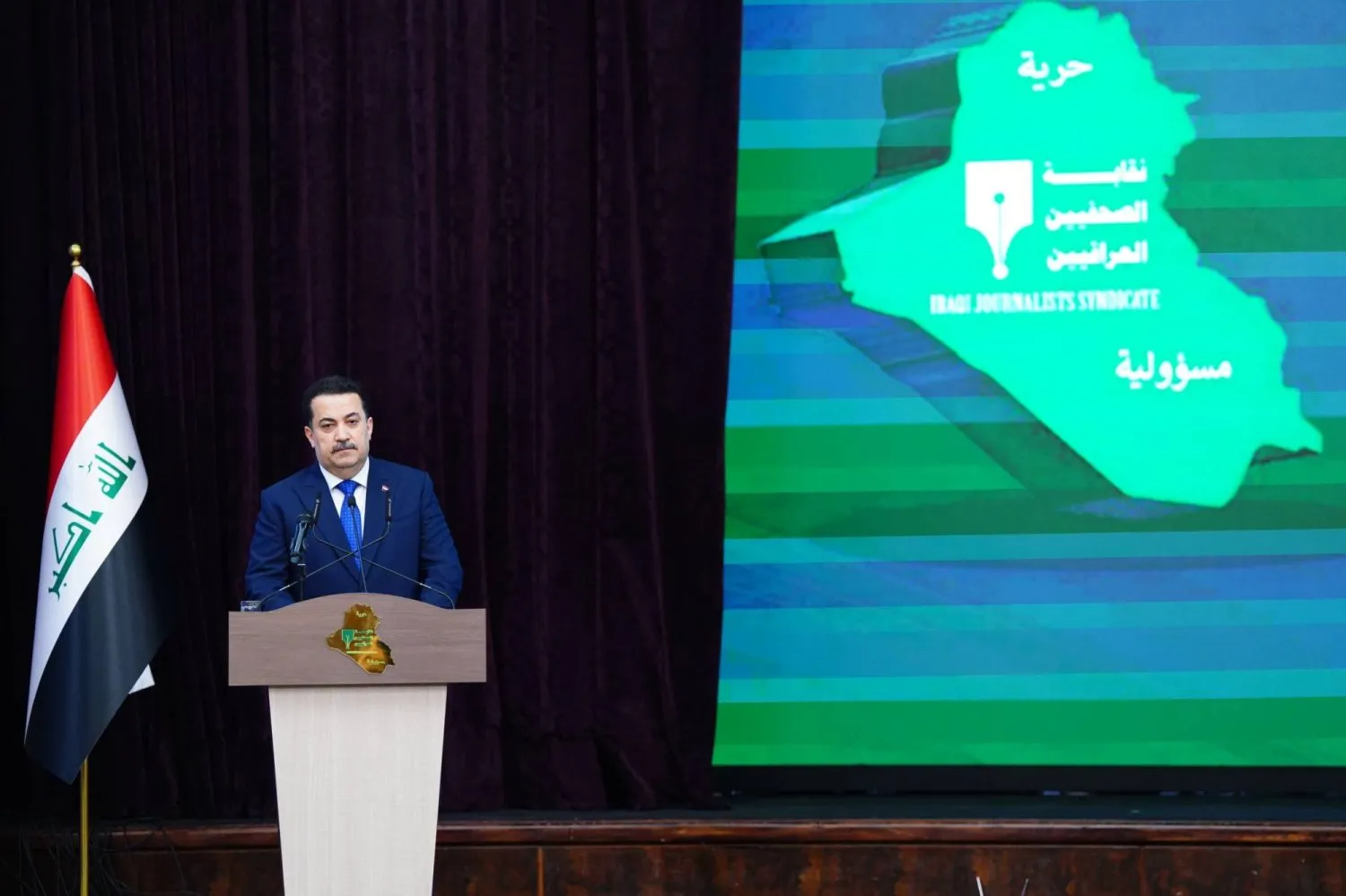Iraqi Prime Minister Muhammad Shiaa Al-Sudani said on Sunday that he is proud that there are no journalists detained or prisoners of conscience in his country.
Speaking at the 155th anniversary of the Iraqi Press Day, held by the Iraqi Journalists Syndicate in Baghdad, the PM said, “The press has a role in defending the new Iraq and exposing terrorism.”
Sudani’s statements came in the wake of a “very pessimistic” report recently issued by the United Nations Human Rights Council regarding Iraq.
But the PM said his government worked to provide a safe environment to ensure that journalists can perform their role without harassment or abuse.
Sudani’s government, the eighth since 1998, is accused of exercising “the most restrictive” measures on press freedom.
Sudani had kicked off his premiership by filing a lawsuit against academic and political analyst Mohammed Nana’ who, in a television show, had accused him of being unable to run the country.
Nana’ was imprisoned and then released on bail in March 2023. He was arrested again in January 2024 by two militants dressed in civilian clothes.
Sudani’s lawyer had later announced that he was pardoned.
Also, Sudani’s government is accused of imposing restrictive measures on journalists who criticize his policies. The PM prevents them from appearing on state-owned and private TV channels.
In addition to those accusations, the UN Human Rights Office of the High Commissioner said last week that it was alarmed by the high number of executions publicly reported in Iraq since 2016, nearly 400, including 30 this year, and the explicit political commitment to continue implementing death sentences.
It said this comes “in total disregard” to the reported irregularities in the administration of justice, cases of enforced disappearances, and torture-tainted confessions, which led to these unfair sentences.
The UN Special Rapporteurs said that not only are death row prisoners subjected to severe psychological pain and suffering due to the lack of information about the date of execution, but they are also reportedly tortured and suffer other forms of ill-treatment in the notorious al-Nasiriyah prison, including lack of access to adequate food and clean drinking water.
In response, the Iraqi government on Friday said it reviewed the report of the United Nations High Commissioner for Human Rights and that Sudani directed the formation of a committee consisting of the Justice Minister, the PM’s Advisor for Human Rights and the Head of the Human Rights Department at the Foreign Ministry, a representative of the Presidency, a representative of the Public Prosecution, and a representative of the Parliamentary Human Rights Committee as an observer, to prepare the official documented response of the government to what was stated in the High Commissioner's report.
In a statement, the government said it adopts human rights principles and humanitarian standards in enforcing justice and implementing rulings in accordance with the law based on divine justice and what the society has approved through its constitutional legislative institutions.
“We have continued with this principle, despite the extent of the crimes committed by terrorism against our people, and despite the brutal attacks that claimed the lives of hundreds of thousands of innocent people, and set an unprecedented example of sophistication in crime and shedding the blood of the defenseless,” it added.
But former member of the Human Rights Commission, Ali Al Bayati wrote in a post on X last Friday that he regrets the statement issued by the Iraqi government, saying that it was “a quick and emotional reaction rather than a professional response.”









